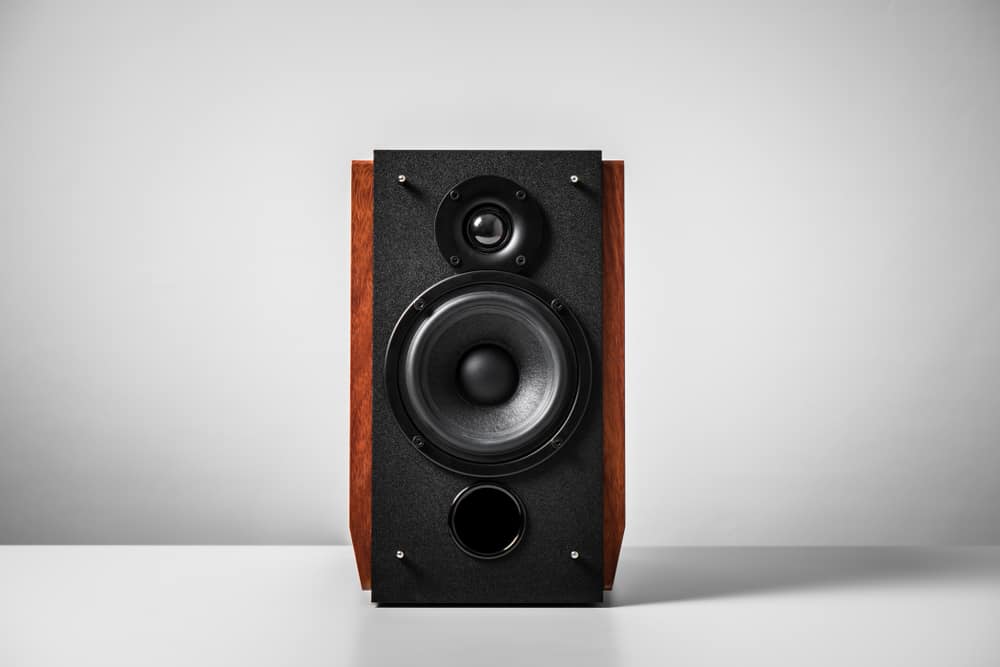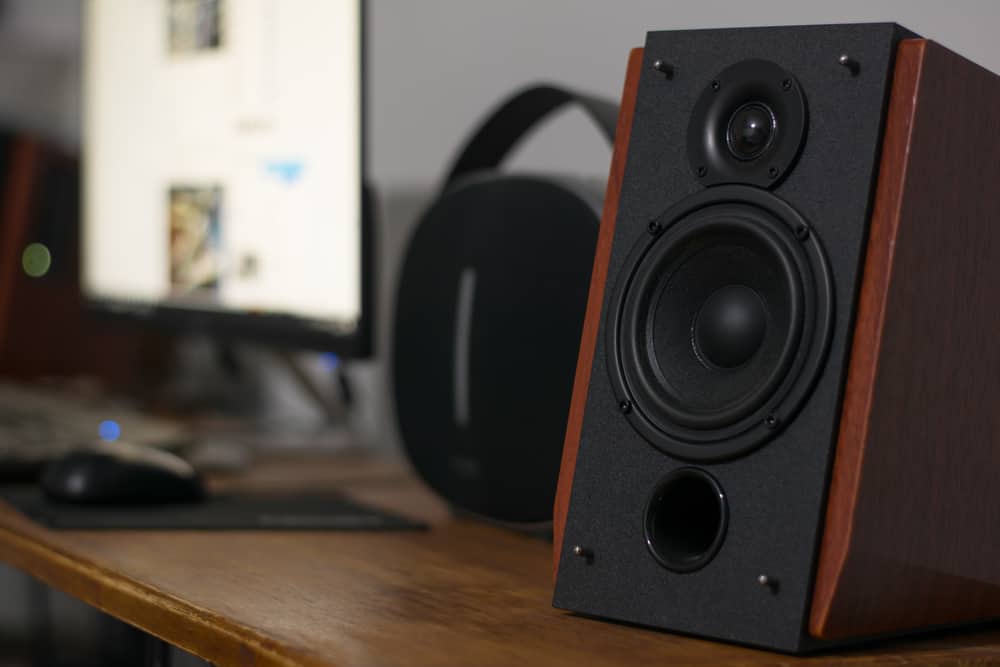
Bookshelf speakers have lots of appeal to many people, and they can indeed be used for many applications from an audio standpoint. However, can they be used in a home theater system as the center channel, and then what about in a studio for mixing with a center channel.
A bookshelf speaker can indeed be used as the center channel in a home theater system because the center channel is mainly dedicated to dialogue. In a studio application, a bookshelf speaker should never be used over a monitor, and you should never use a center channel for mixing unless for the strict purpose of surround sound mixing.
We will consider in this article what a center channel is regarding its use and application in both a home theater environment and then also a studio environment. We will also look at the benefits and downfalls of a center channel in both environments and then determine whether a bookshelf speaker can be used for the center channel.
What is a center channel?
Before we look at trying to place a bookshelf speaker as a center channel speaker, we will first need to look at what a center channel is in terms of home audio and then in a studio application.
A center channel in audio applications is a channel that is used in many surround sound formats. The center channel eliminates the need for the phantom channel (we will discuss this in the subsequent headings), and as we will see, it is mainly used for the dialogue of movies.
Why do you need a center channel?
For home entertainment (home theatre), the main purpose it is used for, is to anchor the dialogue to the center of the screen. Modern AV receivers will automatically send the audio to the correct speakers, and in modern times, you can have anything from a 3.1 sound system to a 5.1 and even a 7.1 surround sound system providing the ultimate home theater experience.
In the case of a studio application, you can have plugins that assign specific audio channels to a specific speaker, and for the most part, you will typically assign the vocals, bass, kick, and (sometimes) snare to the center channel.
If you are not using a center speaker (channel) for studio purposes, then you will just pan the audio channels accordingly. For all intent and purposes, you will never use a center channel in a studio application unless you are specifically mixing for surround sound, i.e., mixing audio for a movie or something similar.
You will almost never use a center channel to mix music because there are a few downfalls to this as we will explain next.
What are the benefits of a center channel?
One of the benefits of having a center channel in home theater systems is that it widens the sweet spot. If you are just using your typical stereo setup with a left front and right front speakers, the sweet spot will be in the center of them both.
Take note that this is only if you have set up your speakers accordingly and to the correct method. You will notice if you are using a single stereo setup that if you have ever so slightly to the left or right, then the sound will change dramatically. For the purposes of home theater applications, this is not the greatest because when you are watching a movie, sometimes you are not always sitting in the center between eh two speakers.
A center channel allows you to increase that sweet spot, so if you are sitting a little off-axis, then the audio will still sound fine.
For purposes in a studio application, this is not ideal. Because you are always mixing based on stereo imaging and the phantom center. The phantom center refers to a psycho-acoustic phenomenon that a person will hear when they sit between a left and right speaker. The audio that they hear will be perceived as coming from the center and not from the left or right speakers themselves.
If you use a center channel for studio applications and you are sitting off-center, your mix will more than likely be off, and your audio will be panned incorrectly. You will hear this instantly when you play the audio back on other devices.
What are the downfalls of a center channel?
We discussed the downfall of having a wider center sweet spot, but this only applies to studio applications and ones not relating to mixing specifically in surround sound.
Another downfall is that if you set the vocals to the center channel, they can be easily removed, creating backing tracks and karaoke tracks without any effort making copyright infringement a hassle. Moreover, another problem may occur that any instrument or audio that you set to come out of the center channel will not overflow into the left and right sides, creating a very narrow and mono feel to the mix.
This is especially true if you are not using reverb and delay to widen the space of the instruments. You will have a wall of sound coming straight at you with little dynamic range and no wide stereo imaging.

Can you use a bookshelf speaker as a center channel?
Well, in terms of a studio application, it is not a great idea to even use bookshelf speakers as monitors, let alone assigning a bookshelf speaker to be used as the center channel. If you would like more info on bookshelf speakers, then check out some of my other articles here.
Bookshelf speakers are not designed to be monitors and should not be used as such. They are not designed to have a flat response which is the key to getting a professional mix. Furthermore, as we said, a center channel should not be used in studio applications besides mixing for surround sound purposes such as movies.
In terms of using a bookshelf speaker for your home theater setup, this will be perfectly fine. Remember, for the most part, the center channel is only reserved for the dialogue of movies, and no other audio will be coming out of it (unless the engineer mixed it differently and not to common practices).
Bookshelf speakers are typically nowadays high-quality audio speakers and are used for listening pleasure. This means that they will be able to handle and play most of the audible frequencies that humans can hear very pleasantly.
Take note that they do not have to have a flat response or have frequencies that are boosted because, again, the bookshelf speaker will mainly be used for dialogue.
Where can i place my bookshelf speaker if I use it for the center channel?
The center channel (speaker) is typically placed behind the movie screen in movie theaters, and you will not see it. However, this will not work for home theater purposes because if you put it behind your TV, it will undoubtedly restrict and block the sound.
What you can do is place the bookshelf speaker above or below the video screen. this will be the best place to put it because it has to be centered to the video without being restricted. Otherwise, the sound will be noticeably strange and the experience will be less than optimal.
Conclusion
We discovered that the center channel in terms of a home theater application and n a surround sound setting is mainly used for the purpose of dialogue. This means that the speaker, in actual fact, does not have to be the greatest quality, and a bookshelf speaker could do the job relatively well in some regards.
However, for studio purposes and specifically for music, you would never use a center channel to mix and produce, and you would certainly never use a bookshelf speaker or speakers as a monitor. Having a center channel in a studio application where you are recording, mixing, and producing can have some serious downfalls that many beginners will not understand or even know exist, and because of this, they should be avoided.
The only time you will use a center channel is when you are specifically mixing audio for a surround sound project, and this will typically be for some sort of movie.
You can learn about 2-way vs 3-way speakers here.
